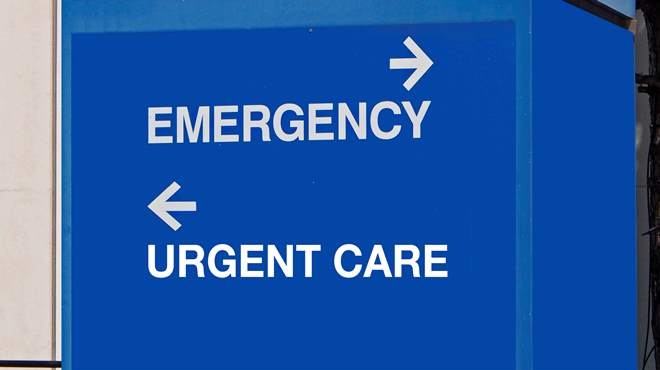Urgent Care vs. Primary Care: Which Is Right for Your Needs?
Urgent Care vs. Primary Care: Which Is Right for Your Needs?
Blog Article
Understanding the Relevance of Urgent Care Services for Non-Life-Threatening Medical Issues
The relevance of urgent care solutions for non-life-threatening medical issues can not be overstated, particularly in today's healthcare landscape. By understanding the advantages of immediate treatment, such as decreased delay times and cost effectiveness, one can better appreciate their duty in individual health and wellness administration.
What Is Urgent Care?
Immediate treatment describes a classification of clinical services made to deal with non-life-threatening problems that require prompt attention however do not require a visit to the emergency clinic. These centers offer a bridge between primary treatment and emergency services, supplying obtainable healthcare alternatives for individuals experiencing severe medical concerns, such as minor fractures, strains, infections, or serious diseases that arise unexpectedly.

The extent of services given by urgent care facilities can vary however normally consists of treatment for common disorders like colds, influenza, and allergies, in addition to small injuries (urgent care). In addition, numerous urgent treatment centers offer preventative solutions, such as inoculations and physical examinations, to deal with broader wellness requirements. By providing a hassle-free option for urgent clinical problems, these centers play a vital function in the healthcare continuum, making certain that individuals receive ideal care when they require it most
Benefits of Urgent Treatment Solutions
Many people find that making use of immediate care solutions offers substantial advantages over traditional emergency situation space visits or awaiting a medical care appointment. One key benefit is the lowered wait times. Urgent treatment centers typically have shorter delay durations, allowing patients to get prompt clinical attention when they need it most. This expedited treatment is particularly valuable for non-life-threatening problems that call for prompt intervention.
Another advantage is the extended hours of operation. Many urgent care centers are open nights and weekend breaks, accommodating people that might not be able to see their medical care physician throughout routine workplace hours. This versatility makes it less complicated for people to accessibility treatment at their ease.
In addition, immediate treatment solutions often offer an economical option to emergency clinic. When looking for therapy for small ailments at immediate treatment facilities instead than health center emergency situation departments., patients regularly face lower co-pays and total expenditures - urgent care.
Finally, urgent treatment centers are furnished to deal with a selection of non-life-threatening problems, offering a wide variety of services under one roof covering. This thorough technique not only simplifies the treatment procedure linked here however also improves individual complete satisfaction by delivering timely and efficient treatment.
Usual Conditions Dealt With
What types of non-life-threatening problems can other patients expect to get therapy for at urgent treatment? Immediate care centers are furnished to deal with a wide variety of common clinical problems that call for prompt interest yet do not pose an instant hazard to life. These centers frequently deal with conditions such as minor cracks, strains, and strains, supplying important look after injuries that take place during daily tasks or sporting activities.
Additionally, clients regularly look for treatment for respiratory infections, including colds, influenza, and respiratory disease, where prompt treatment can reduce signs and protect against problems. Skin disease such as rashes, insect attacks, and small burns are likewise generally addressed, as timely treatment can minimize pain and minimize the danger of infection.

Contrasting Urgent Care and Emergency Rooms

One considerable distinction exists in delay times; immediate treatment centers typically have shorter wait times compared to emergency clinic, which can be crowded with even more crucial instances. This performance enables clients to receive timely therapy for their disorders.
From a monetary perspective, immediate see this website treatment check outs tend to be more economical than emergency room brows through. Insurance policy copays and out-of-pocket costs are typically lower at immediate care centers, making them an extra cost-effective choice for non-emergency scenarios.
Exactly How to Select an Urgent Treatment Facility
Picking the ideal urgent care center can substantially enhance the top quality of care obtained during a non-life-threatening medical problem. When choosing an immediate treatment facility, a number of crucial aspects need to be considered.
First, analyze the center's certification and licensing. Some urgent care centers specialize in particular areas, while others provide thorough care for various clinical issues.
In addition, take into consideration the place and hours of procedure. An easily situated center with extended hours can be crucial for timely care. It's likewise recommended to examine the center's wait times and individual reviews, which can give understandings right into the general individual experience.
Final Thought
In conclusion, urgent care services play an important duty in addressing non-life-threatening medical issues successfully. Inevitably, recognizing the significance of urgent care facilities contributes to boosted health care management and patient fulfillment.
 By using a convenient option for urgent clinical issues, these centers play a vital role in the health care continuum, guaranteeing that patients receive ideal treatment when they need it most.
By using a convenient option for urgent clinical issues, these centers play a vital role in the health care continuum, guaranteeing that patients receive ideal treatment when they need it most.Numerous people discover that using immediate care solutions provides substantial benefits over traditional emergency situation space sees or waiting for a main treatment consultation. Several immediate care centers are open evenings and weekends, suiting people that might not be able to see their main treatment doctor throughout regular office hours. Immediate treatment facilities are developed to attend to non-life-threatening conditions, such as small fractures, infections, and diseases, using a hassle-free choice to emergency situation areas for those in need of immediate care. Some urgent care centers specialize in details locations, while others provide extensive care for different clinical concerns.
Report this page